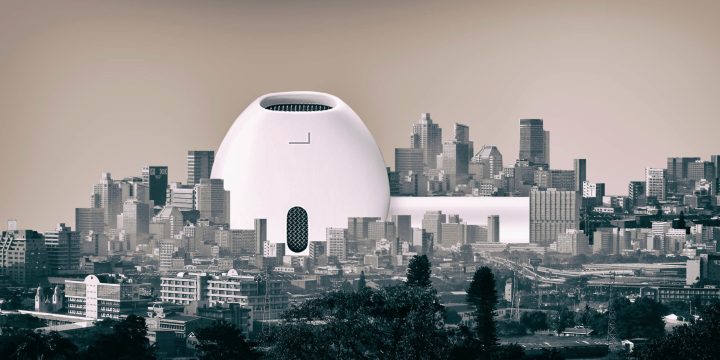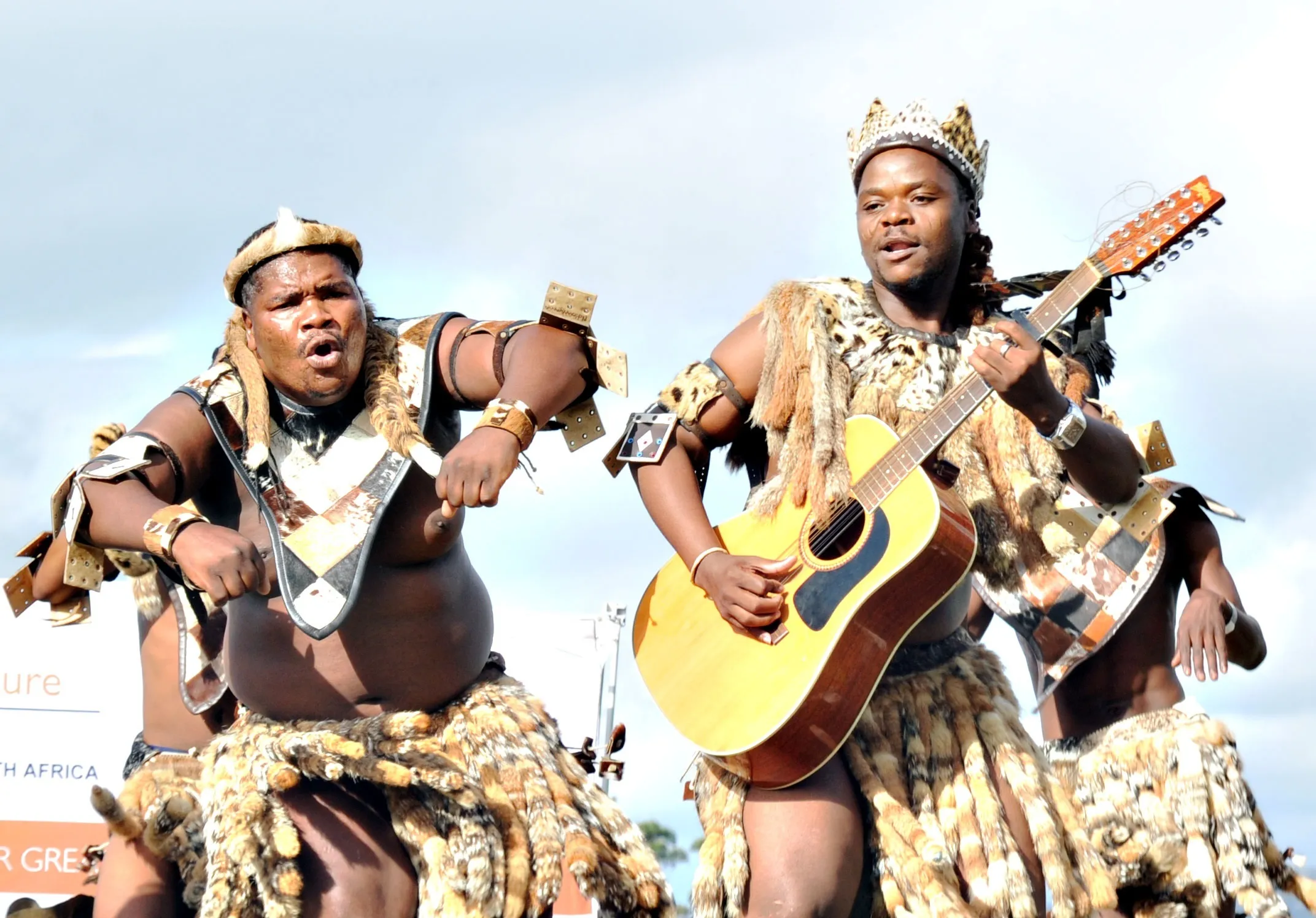MATTERS OF OBSESSION
Louder! From maskandi to gqom, Durban’s ever-growing sonic pulse

The sultry city of Durban has produced musical talent that has gained local and international recognition, and in recent years, with the popularity of gqom, the city’s dance music scene has come under the spotlight. Now, the sound is even richer and more diverse than ever.
Of South Africa’s three major cities, Johannesburg and Cape Town get the lion’s share as far as the cultural and entertainment scenes go. Yet, when it comes to spawning some of the most influential musicians and creating new musical genres, there is no denying the influence of the city known as eThekwini.
“I don’t think it’s possible to really measure the influence Durban has had, but it’s immense. From Nasty C to Shekhinah; from gqom to Durban house – it is impossible to deny that this city has constantly pushed the bar higher and higher for the whole country, and has provided music that the entire world resonates with,” says music journalist, host and producer of the Almost Perfect Podcast, Bob Perfect.
From DJ Black Coffee, DJ Tira’s Afrotainment stable, to rapper Nasty C – who recently released his latest album “Zulu Man With Some Power” with American Def Jam Records and a marketing campaign that saw his face splashed on the side of buildings in Times Square – through to a number of dance music genres.
Indeed, a fair amount of the popular sounds coming from South Africa right now have some connection to Durban, whether it be artists raised in the Kwazulu-Natal city or musical genres like gqom – a form of electronic dance music that mixes hip-hop beats with a house music tempo which, in turn, generates a pulsating and energy sapping sound that sends people into a virtual hypnotic trance.
Frontrunners of the genre, such as duos Rudeboyz and Distruction Boyz, as well as DJ Lag – who has also worked with Beyonce – have rightfully become household names. Deejays such as DBN Gogo have also represented the city well on the popular Amapiano scene.
Admittedly, this roll call doesn’t make for an exhaustive list of the wealth of musical influence and talent coming out of Durban – it can’t. And we haven’t even started on Durban’s promising underground scene.
Online international music broadcasting platform, Boiler Room, hosted their first event in Durban in September 2019, headlined by DJ Lag, Rudeboyz and Thukzin, among others. The event was an ode to DJ Lag’s hometown of Clermont (upper highway area of Durban) and it aimed to celebrate the major strides the genre has made. While international attention has been focused on gqom as the sound of Durban over the past few years, the city is a melting pot of music.
Take maskandi for example – the Zulu folk music genre will always be part of Durban’s sonic heritage. One of the genre’s finest, Mroza Fakude’s ‘Van Damme’ song, which spoke about overcoming challenges, won SABC Summer Song of the Year 2016.

Maskandi musicians performs at the Phuzekhemisi music festival (Photo by Gallo Image/ Daily Sun/ Jabulani Langa)
“Maskandi is a mosaic of musical styles that is a consequence of the meeting of various cultures from all over Southern Africa. The music emerged out of the conditions of colonisation, particularly the migrant labour system. The mining of gold and other minerals led to large contingents of black people leaving their homes to work in the mining areas. It is in these mining camps that maskandi was created,” wrote Mbe Mbhele in a 2018 article in the Mail and Guardian.
To this day, maskandi’s distinct sound is not lost on Durban’s city center: an acoustic guitar accompanied by beautiful vocals, reminiscing of the lush valleys of KwaZulu-Natal. Maskandi can be heard at markets pumping through a large speaker, or sung by someone trying their luck performing at a busy taxi rank at peak hour, or even by someone sitting next to you in a taxi.
According to a 2017 article by Huffington Post researcher Bongiwe Gumede, “The genre combines the use of vernacular lyrics with Western musical instruments such as guitar, concertina, violin, and piano accordion. What makes maskandi recognisable is the distinct guitar and concertina which is ‘doctored’ to produce a certain pitch, and the self praises that the musicians say when introducing the song.”
Gumede also addresses the myth that maskandi is a genre for Zulu people only: “Although maskandi has popularly been known as a typically ‘Zulu’ type of music performed by Zulu men, many literary and academic scholars have argued that contemporary maskandi is not limited to the Zulu culture, but is found in isiXhosa, isiNdebele, Sesotho, and Setswana culture.”
Other than gqom and maskandi, Durban also has a solid output of hip-hop, pop and punk, as well as house music offshoots like techno, dubstep and trance.
Durban has a host of artists who fall under the electronic music blanket. Artists like Jonty Hurd, Sean Ross, Hendrik Joerges, Tamryn Jacobs and Veranda Panda have all been identified in the media as electronic music artists in the underground scene.
Even artists such as Moonchild Sanelly and Muzi, who kickstarted their careers in Durban, have found themselves experimenting in alternative sounds that can fit into the European electronic music market, while making music that relates to the local market and performing at local Durban venues like the Bat Center – where Moonchild recited poetry – and The Warehouse, where Muzi launched his ‘Zeno’ project.
Nonetheless, in spite of such an expansive musical scene, Bob Perfect points to a lack of resources, and how, if the industry had to get support from the government, it could expand dramatically.
“I don’t think there’s much that really separates Durban artists from the rest of the country or the rest of the world, other than a lack of support and resources. That lack of resources and support often means that Durban artists are typically hungrier than their counterparts from around the country, which is why they often thrive [only] when they leave the city.
“It also means that Durban artists have to collaborate with each other more, which is why I think we have such a diversity of sounds coming out of the city,” he explains.
“That said, we’ve seen artists like [rapper/director/songwriter] Aewon Wolf build a career without leaving Durban, and DJ Lag has toured the world while still giving back to the people of Clermont.
“Even though Durban artists are under-supported by local government and the general public, the industry has still grown into a force to be reckoned with,” adds Perfect.
Artists like ByLwansta, Red Robyn, Robin Thirdfloor, Missu and Rhea Blek have all done well in Durban’s underground spaces and are now making their mark outside the region.
What is it about Durban’s sound that inspires?
For alternative artist/singer Savannah Thunder, “Durban sounds like a gentle breeze blowing through the mangroves while start-up psych rock bands and new age hip-hop heads rehearse in the distance.”
Pop singer/songwriter 1DLE says: “When I listen to Durban, the first sound I hear is the ocean; at first the waves merely touch the shore, but the longer I listen I start to notice that there’s a constant rhythm and pulse going on. As the intensity of the ocean picks up, I hear hadedas greeting me, followed by voices shouting ‘Aweh!’ as bottles clink right before the very first sip, with the sound of music and laughter shortly behind it. You don’t just feel the energy in Durban… you can also hear it.”
Sqalisu, one half of the band Umsindo Musiek, adds, “When you say sound, I instantly think, Zulu. I know that’s far from anyone’s description of sound, but a great deal of music that comes out of Durban is influenced by the native majority. It’s big, it’s everywhere, in streets, in taxis, in restaurants, at the mall, on TV ads. From gqom to Afro tech to house.
“I don’t know if you’ve noticed, but there’s always a djembe… it’s loud, it’s strong and it’s traditional. Our music is based on sounds we’ve been hearing since we were kids; sounds we turn to frequencies that we thought we created – but it’s all been around for longer that we’ve been alive.
“Durban’s sound is mature and rich because it’s been passed down to us. We’re just sharing it in our own way. The warmest place to be will surely produce the hottest music,” says Sqalisu.
For Levi, the other half of the band, “When I think of the Durban sound, I think of underground music. It always has been. From the illegal parties in the 80s and 90s to the small and intimate parties in record stores [like ALTR]… it’s been a driving factor in the South African community and even deeper, the Durban community.
“Since I was a child, house was deemed as the face of underground music and I totally agree. What more could you want than driving kicks and fascinating melodies with bass lines so strong you could break down into tears?
“This is what I feel Durban sounds like. The ear-to-heart music that taxis, Ubers and local radio djs play is phenomenal. I totally agree with Squizz [Sqalisu], Durban brings a rich and mature sound with the thump of the djembe… this really brings a traditional and connective nature to house music and the underground music of Durban,” says Levi.
Rapper/producer Luke The Dropout says “Durban is mainly a house-orientated city in terms of the major commercial sound, but right now, in the more urban and youthful demographic, we are seeing a burgeoning hip-hop culture.
“You walk around the more urban areas of town you are likely to run into Trappers, Backpack rappers and Battle rap MCs. Durban’s sound is very wide and broad, it’s hard to just define one sound. There’s some hip-hop here, some maskandi there and definitely some house music in the mix.”
For alternative singer/songwriter Indie Vogue, Durban might be known for a popular sound: gqom. “But the diversity and undiscovered talent here is almost insane. I’d consider Durban sound very diverse, raw and vibrant. If you dig deeper you just might discover the amounts of undiscovered talent and unheard sounds,” she says.
Hip-hop producer/DJ ASVNTE and rapper/producer Jo-Kim point to “summer vibes, fresh air, amazing weather with the ocean breeze” and the sound of “creativity and diversity”.
New age neo-hip-hop vocalist Nipho Hurd adds that, “At the moment the sound of Durban is somewhat of an organised chaos, that’s almost silent. It’s many geniuses at work, with many new genres coming up and out, but nobody’s listening – well people are starting to listen, but not as many as we need for the evolution of music in Durban, South Africa.”
Electronic DJ/producer Hendrik Joerges tells Maverick Life that, “If you listen closely enough, you hear an incredibly diverse selection of music. Go to your local pub and you’ll hear an up-and-coming indie rock artist perform. Go to a nightclub on the outskirts of town and you’ll hear European and American-influenced techno and house.
“If you travel into the city center you’ll hear afro-house and gqom. If you happen to be at a rooftop lounge, you might hear some classic RnB, hip-hop and soulful house. Everyone you turn to hears something different, and this also goes for the creative process… Gqom originated in Durban as a genre that was made popular through CDs being handed out at taxi ranks and played in the taxis.”
However you imagine the sound of Durban, or the city’s influence on music locally and abroad, “the magic is that the genre which has now gone worldwide began in the hearts of people with a passion for creation… and it was done in people’s bedrooms and garages, not a big fancy studio.
“Durban to me sounds like an auditory kaleidoscope of multicultural talent,” says Joerges. DM/ ML

















 Become an Insider
Become an Insider
Comments - Please login in order to comment.